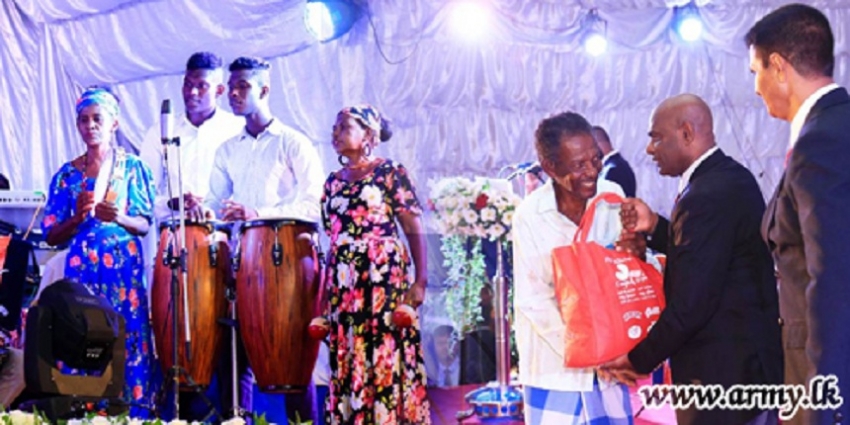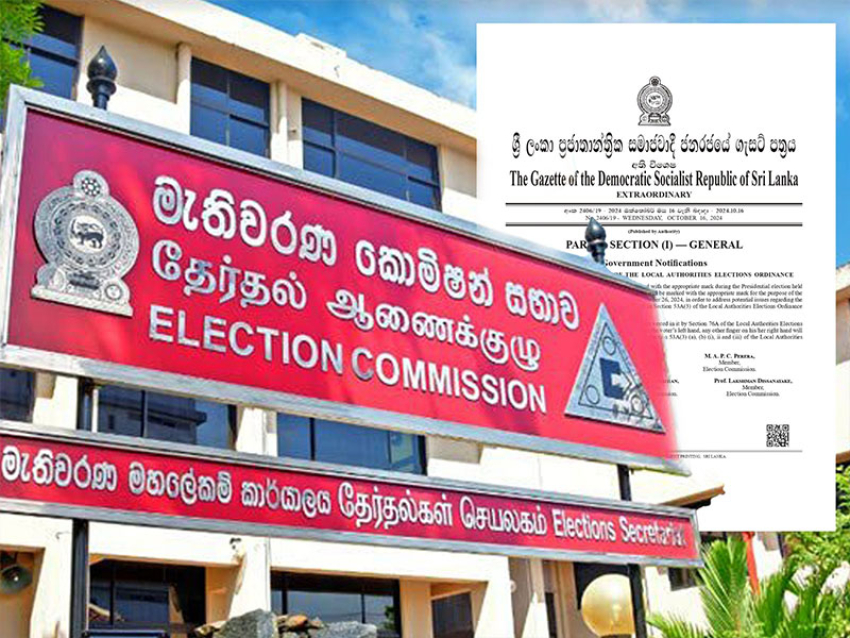Attaching greater significance to the evening was the Commander of the Army, Lieutenant General Mahesh Senanayake who graced the festivity as the Chief Guest at the invitation of Church authorities and the 143 Brigade Headquarters which supplied the Army Choirs and was instrumental in facilitating the conduct of the entire event before a packed audience. The Chief Guest on arrival was greeted to a bevy of Kaffir woman dancers who ushered him to the venue before a little girl welcomed him with a bouquet. In a minute, the traditional oil lamp-lighting set the stage ready for the day’s performances, followed by the welcome speech of Brigadier Dhammika Dissanayake, 143 Brigade Commander who highlighted the importance of the spectacle for understanding, co-existence, harmony and reconciliation.
Rev Fr Kennedy, Pastor at Puttalam St Mary's Church, Catholic priests, Sisters, Major General Sathyapriya Liyanage, Commander, Security Forces - West, Major General Chula Abeynayake, General Officer Commanding, 14 Division and a distinguished gathering of invitees were among the spectators to the arrangement, coloured by Army Choirs, Kaffir children's cultural feats, Carols and other combined X’mas features.
Appreciative of their contribution to the show-piece, the day’s Chief Guest, Commander of the Army, visibly impressed, gifted Kaffir artistes and their children with packs of dry rations and school accessories soon after they showcased their artistic prowess to roars of applause. Towards the end of the event, Rev. Fr Kennedy raised the vote of thanks, in which he praised the Army for its meticulous planning and marvellous arrangements made to stage the show of goodwill, peace and harmony.
Chronicles confirm that ‘Kaffirs’ had been first brought to the island by Portuguese invaders some 500 years ago to work as labouring slaves and the arrival of the British who captured Sri Lanka after about 300 years also became heavily involved in the Indian Ocean slave trade.
Following the Abolition of Slavery, all slaves in the island were freed but those who did not have anywhere to go remained here as British colonial rulers began offering piecemeal jobs to those Kaffir members as required by them. Gradually, they assimilated to the Sri Lankan culture as time went on. Today, the vast majority of Afro-Sri Lankans are living in the north-western coastal belt close to Puttalam for generations, many of who are married to men of Tamil ethnicity.
However, their interaction with the rest of the country diminished in the past due to the terrorist war and family lineage feuds, resulting in the slow growth of their ethnic group. Those African-Sri Lankans continue to make a living largely by fishing, selling, labour work, etc as at present.
This was one of the most rare occasions where they were invited to a mammoth display of their cultural heritage.



















